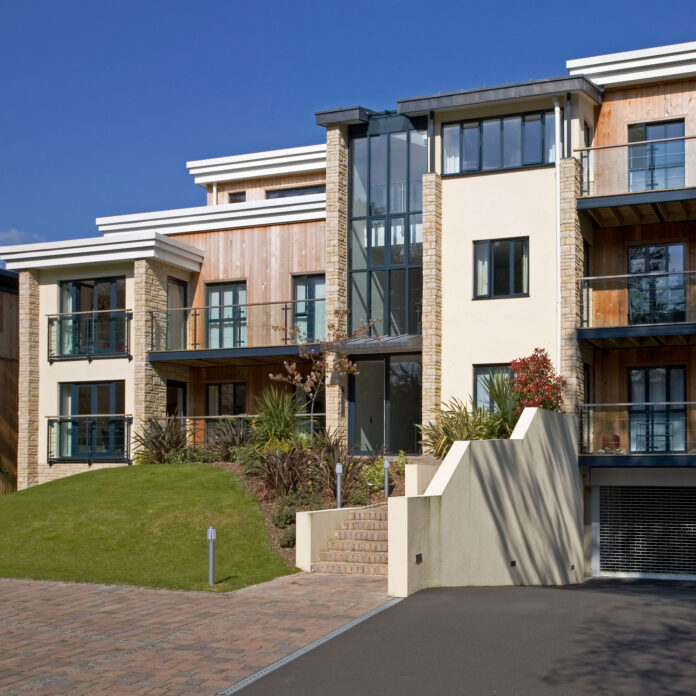Buying your first home is an expensive endeavour and in most cases, every penny counts, with those looking to get on to the property ladder often spending years trying to save for a house. Thankfully for first time buyers, stamp duty rules that offer exclusive exemptions to paying the tax are available.
Stamp Duty Land Tax, or stamp duty for short, is a tax paid by someone who is buying a property or land in England or Northern Ireland. A similar property tax system operates in Scotland and Wales.
During the pandemic, a stamp duty holiday was introduced. For this period, the threshold, or minimum property price, at which stamp duty kicks in was raised from £125,000 to £500,000 for all homebuyers giving those moving up the property ladder the chance to save up to £15,000.
Rob Houghton, chief executive of home moving firm Reallymoving, says: ‘The end of the stamp duty holiday and the return of the original threshold is good news for most first time buyers as they’re once again the only ones to benefit from the exemption in England, Northern Ireland and Scotland meaning less competition for starter homes from other buyers.’
Do first time buyers have to pay stamp duty?
Not necessarily – it depends on the price of your home.
Here’s a table showing the standard stamp duty rates in England and Northern Ireland and the rates that apply to first-time buyers only.
Portion of purchase price
Standard rate of stamp duty
First-time buyer stamp duty rate
£0 to £125,000
0%
0%
£125,000 to £250,000
2%
0%
£250,000 to £300,000
5%
0%
£300,000 to £500,000
5%
5%
£500,000 to £925,000
5%
5%
£925,000 to £1,500,000
10%
10%
£1,500,000
12%
12%
Here’s how you work out how much you will pay:
If you’re a non-first-time buyer purchasing a house for £300,000:
On the first £125,000 you pay £0
On the portion between £125,00 and £250,000 you pay 2% which is £2,500
Between £250,00 and £300,000 you pay 5% which is £2,500
Therefore your total stamp duty bill is £5,000
Thanks to exemptions introduced in the August 2017 Budget, a first-time buyer making the equivalent purchase would pay £0.
According to Halifax, the average price paid by first-time buyers in the UK last year was £264,140. Therefore, the majority of first-time buyers will pay £0 in stamp duty because of the exemption.
The government has a handy stamp duty calculator that will work out your bill depending on your circumstances. Read our First time buyer mortgage guides for further expert help through the process.
Image credit: Future PLC/ Robert Sanderson
First-time buyer relief is different in Scotland.
Mr Houghton explains: ‘In Scotland, first time buyers are exempt from paying Land and Buildings Transaction Tax on homes up to the value of £175,000. If the property value is over that threshold they will only pay the tax on the proportion of the purchase price that exceeds £175,000 which means they benefit from a saving of £600.’
The equivalent tax in Wales is called Land Transaction Tax. There are no exemptions for first-time buyers but no stamp duty is payable on any residential property that is your main home priced at £180,000 or less.
First time buyers stamp duty – what are the rules around exemption?
‘The relief is intended to only apply to first time buyers of residential property,’ says Matthew Todd, national technical tax and advisory manager at RSM.
‘The main condition is that the buyer has never had a major interest in a residential property anywhere in the world. This would include a property inherited from another family member, such as a grandparent.’
The first-time buyer must plan to live in the property as their home and if it is a joint purchase both buyers must meet HMRC’s conditions.
When might first time buyers have to pay stamp duty?
Buying a first home priced at more than £300,000 will trigger a stamp duty bill for the buyers but it will be less than that paid by someone moving up the property ladder rather than stepping on to it.
Just three regions of the UK have an average first-time buyer house price that exceeds £300,000, London, South East of England and East of England.
Using London as an example, where the average first-time buyer spent £475,800, the stamp duty bill would be:
On the first £300,000 – £0
Between £300,000 and £475,800 at 5% – £8,790.
Without the first-time buyer stamp duty exemption, the tax bill would be £13,790. Even with the best first time buyer mortgage rates in place that’s a cost of living any new homeowner could do without.
For first-time buyers purchasing a property that costs more than £500,000 any first-time buyer relief is withdrawn entirely.
The post First time buyers stamp duty – what are the rules around exemption? appeared first on Ideal Home.










